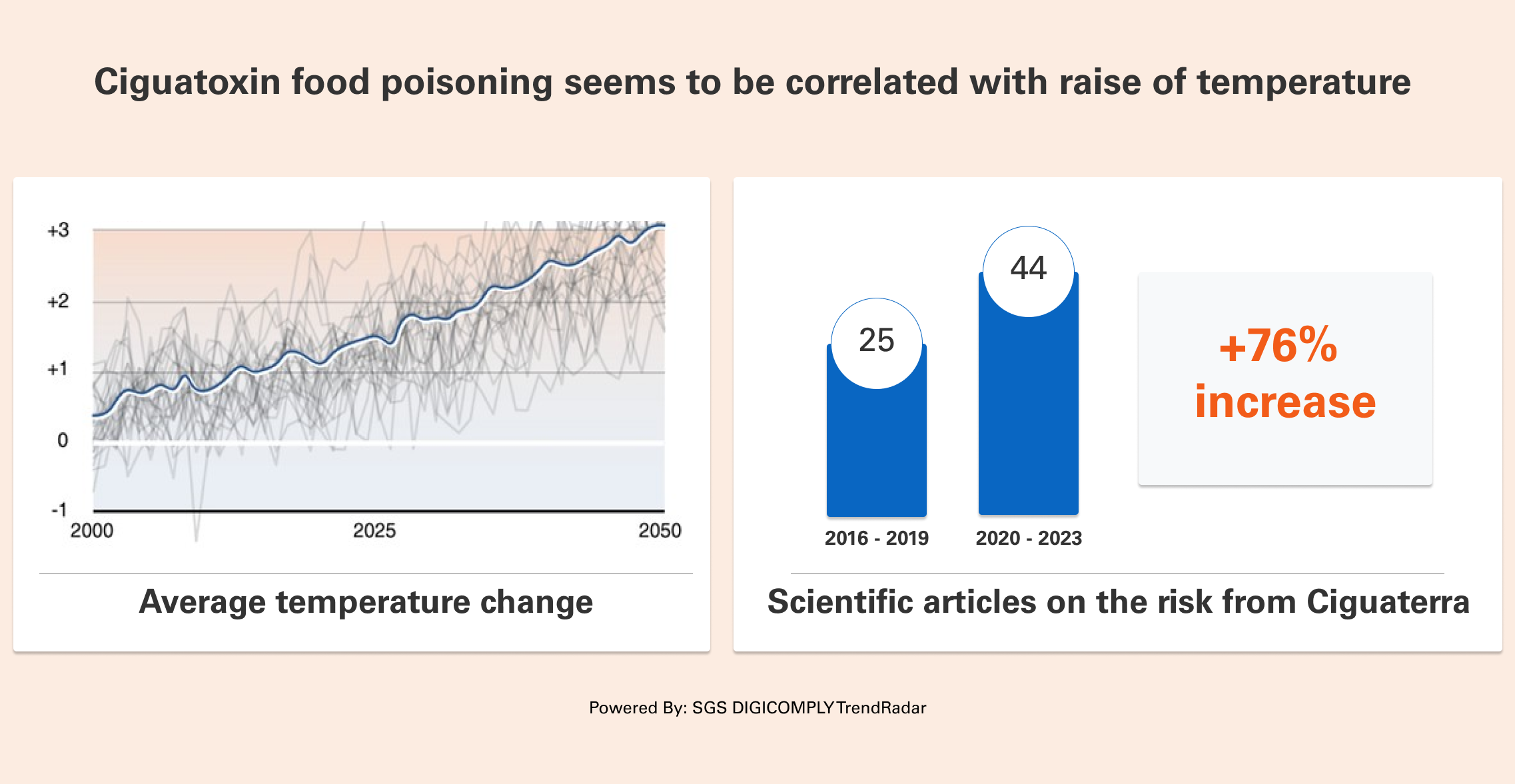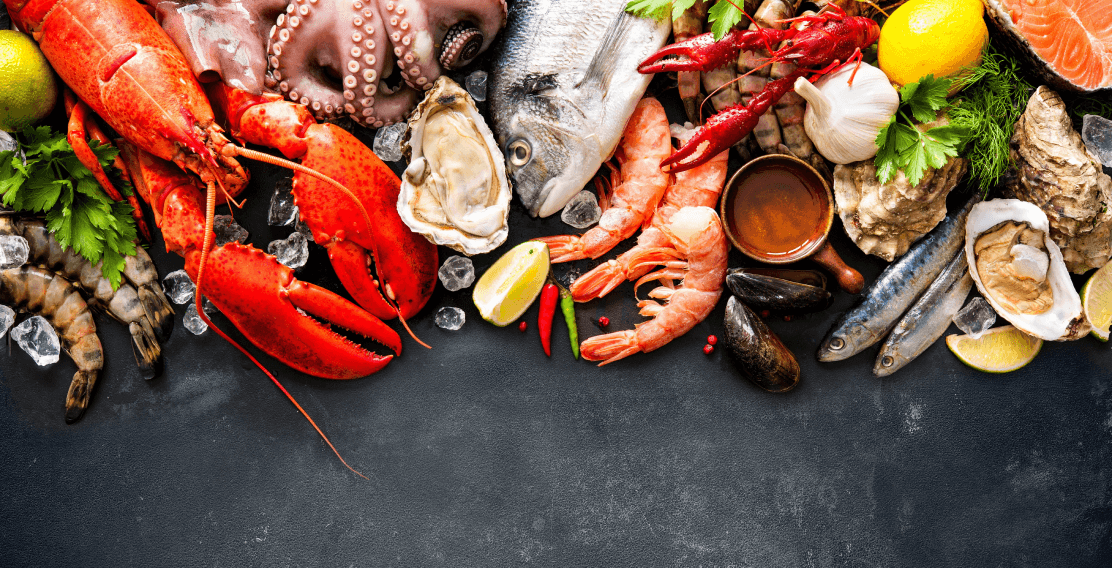Marine biotoxins are chemical contaminants that occur naturally in certain types of algae and other microorganisms, such as bacteria. These toxins can enter the food chain primarily through the consumption of fish and other seafood, including molluscs and crustaceans. The presence of these toxins in marine and freshwater environments is strongly influenced by climate and temperature.
Through the integration of thousands of data sources, AI technology facilitates a comprehensive and focused analysis of food safety data and essential insights. These insights are then contextualized with real-time laboratory data, enabling the identification and connection of previously unseen emerging risks related to food.
Ciguatera fish poisoning (CP) is the most prevalent form of marine biotoxin food poisoning worldwide, with an estimated 20,000-50,000 cases occurring each year. However, studies suggest that less than 10% of actual cases are ever reported.
Typically, the occurrence of ciguatera fish poisoning (CP) is a result of consuming fish that have accumulated ciguatoxins (CTX) in their flesh. These toxins are produced by two families of microalgae known as Gambierdiscus spp. and Fukuyoa spp. Individuals who consume CTX-contaminated fish may experience a variety of short and long-term symptoms, including gastrointestinal, cardiovascular, and neurological effects.
CP is primarily found in tropical and subtropical regions. It was first documented in the Atlantic Ocean's Spanish and Portuguese Macaronesia islands (the Canaries and Madeira) in 2004. Additionally, Gambierdiscus has been discovered in various Mediterranean islands, including Crete, Cyprus, and the Balearics.
It is important to note that climate change is expected to have a significant impact on sea-surface temperatures in certain regions. This could potentially lead to a wider distribution of harmful marine algae, as they thrive in warmer waters.
Moreover, our DIGICOMPLY Trendradar reveals a noteworthy trend - there has been a surge in scientific publications addressing ciguatoxins. This, along with the climate data, acts as an early indicator, emphasizing the increasing recognition and concern surrounding this matter.






.webp?width=1644&height=1254&name=Food%20Safety%20Dashboard%201%20(1).webp)
